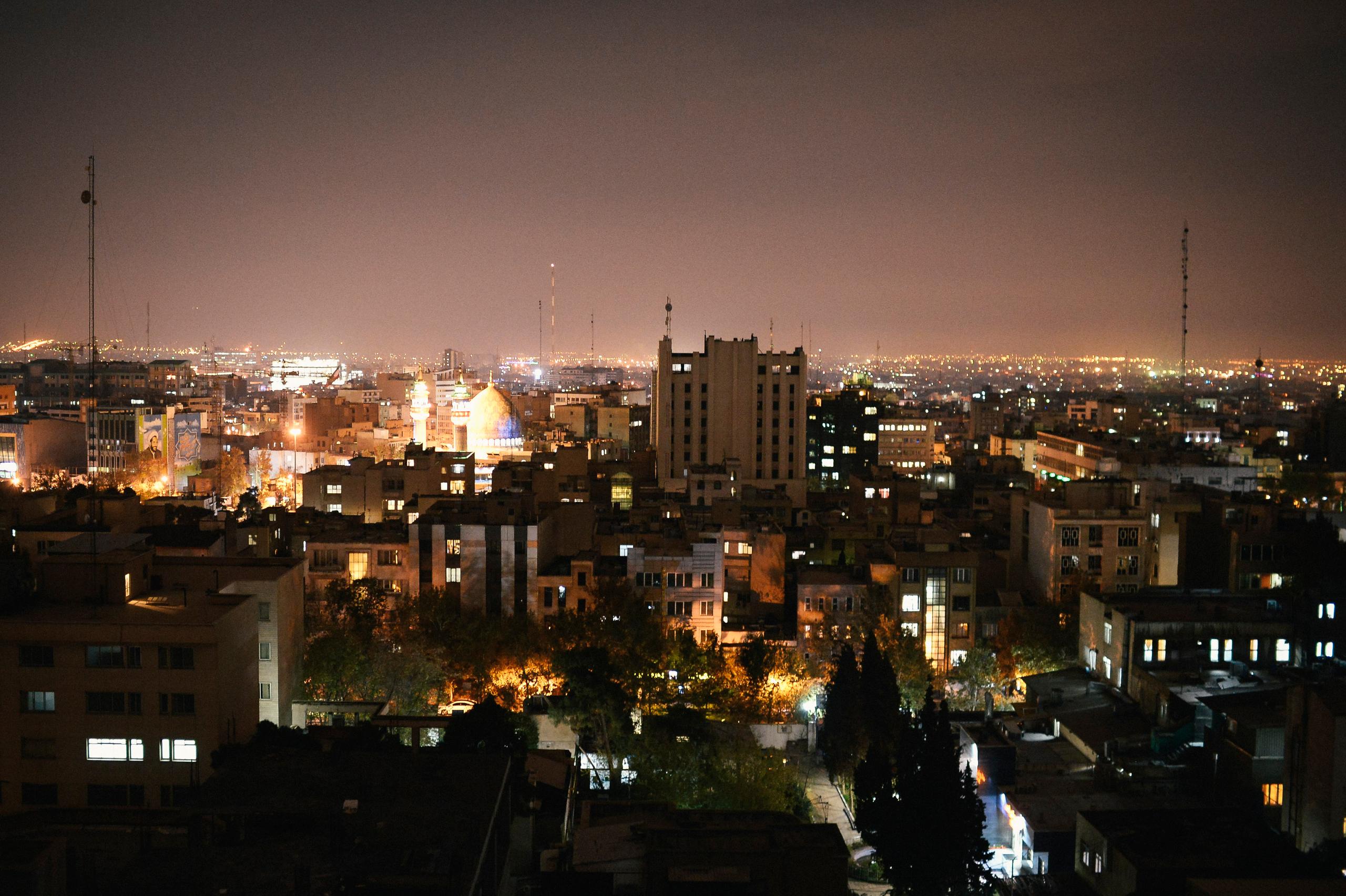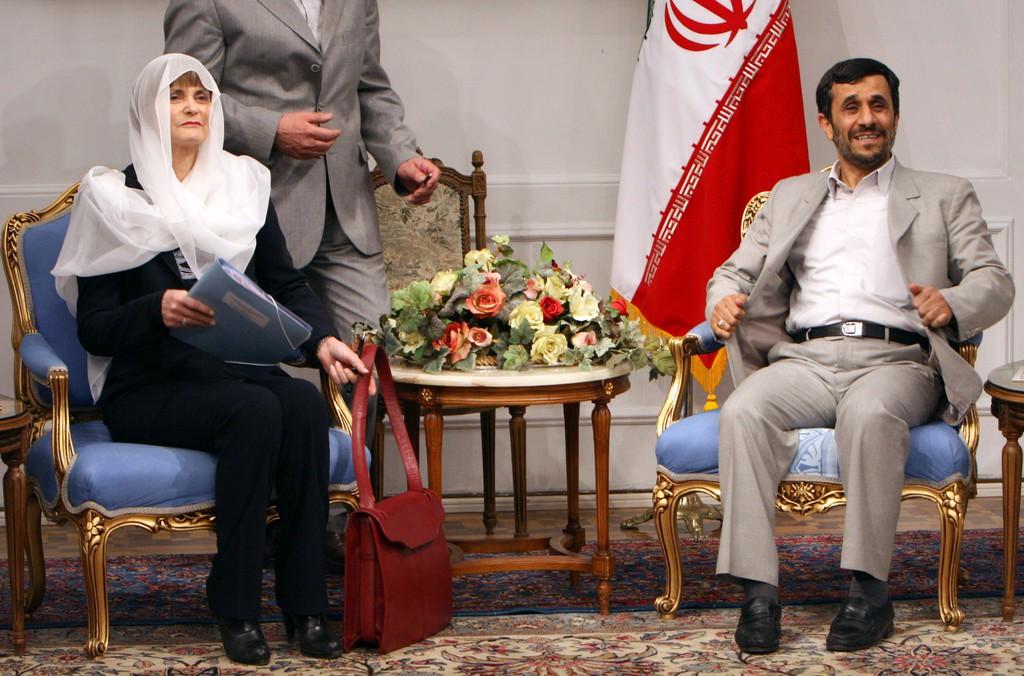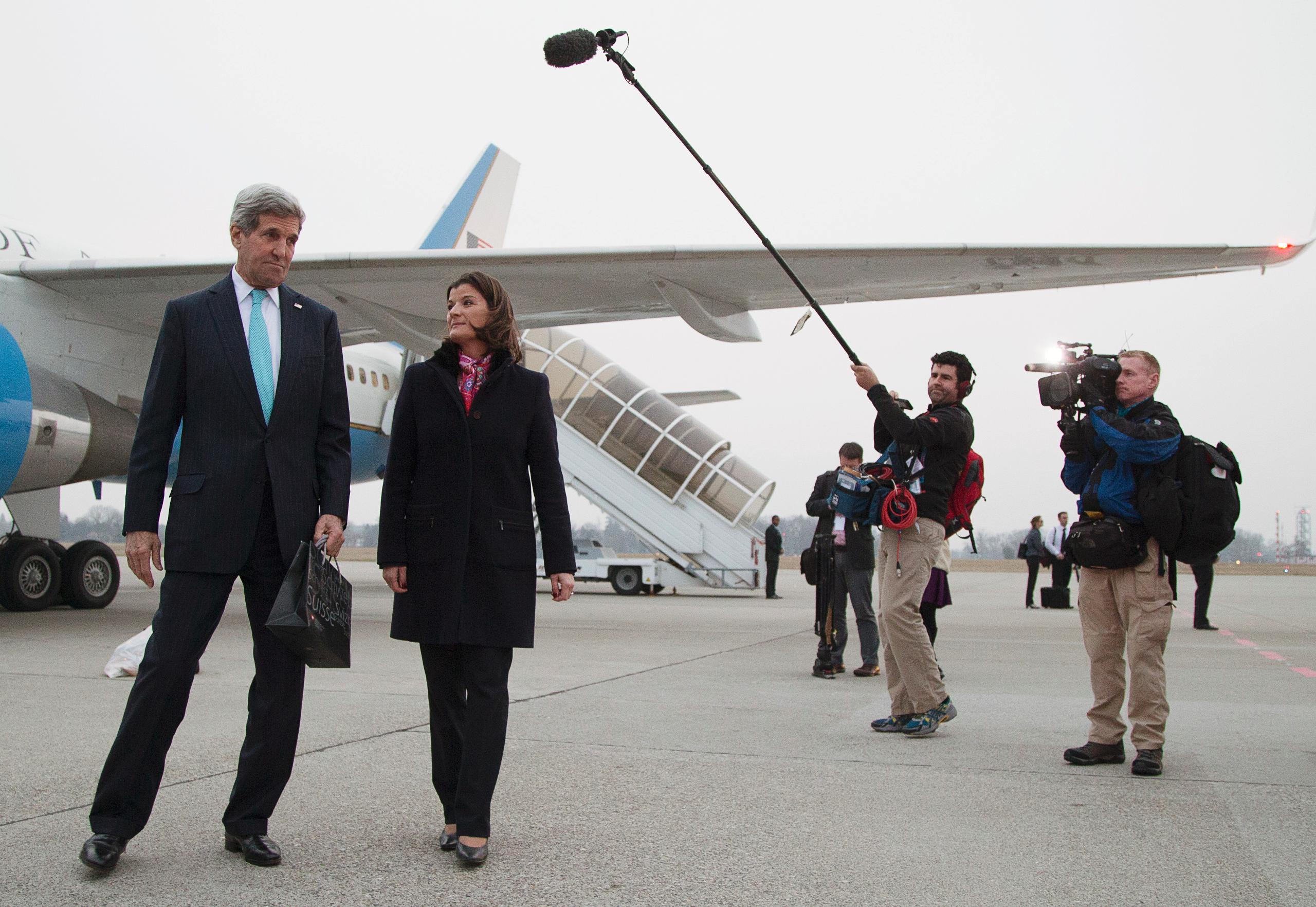Iran and the Swiss connection – a guide

Switzerland, like much of the rest of the world, has an eye on deepening its trade relations and other opportunities emerging from Iran’s newly open marketplace; but that’s where many of the comparisons end, because of a decades-long special relationship between the two countries.
Swiss President Johann Schneider-Ammann’s visit to Tehran this weekend comes at a special time, just after the implementation of a nuclear deal by six world powers aimed at curbing Iran’s nuclear program in exchange for lifting some of the international sanctions that have crippled its economy.
Here, swissinfo.ch explains some of the new opportunities emerging from Iran’s domestic market of almost 80 million people, but also some of the potential pitfalls in a theocratic Islamic republic.
What is the purpose of Schneider-Ammann’s visit?
The Swiss president joins a growing line of world leaders who are making a visit to Iran to size up the opportunities and send a message that encourages new investment. In late January, the Chinese president was the first to visit Tehran since the nuclear deal took effect.
The lifting of sanctions against Iran, plus the release of up to $100 billion (CHF100.5 billion) in frozen Iranian assets as part of the nuclear agreement, will help revitalize the Iranian economy. Schneider-Ammann, whose delegation will include several dozen handpicked Swiss business and academic leaders, also represents Switzerland’s growing portfolio of diplomatic responsibilities involving Iran.
What are those new diplomatic responsibilities?
Only this month Switzerland announced it has agreed to represent Saudi Arabia’s interests in Iran so that Iranians can continue to visit the kingdom. Switzerland separately offered to represent Iranian interests in Saudi Arabia, once the Swiss representation of Saudi Arabia is clearly established.
Saudi Arabia cut diplomatic ties with Iran in January after protesters outraged over the kingdom’s execution of a prominent Shiite cleric set fire to the Saudi Embassy in Tehran and another diplomatic mission. The Swiss role would primarily be to facilitate visits by Iranian Muslims to Saudi Arabia for religious pilgrimages.
How big are the opportunities for Switzerland?
Iran has what the World Bank calls the second-largest economy in the Middle East and North Africa, after Saudi Arabia. Iran’s economic output was an estimated $406.3 billion and it had a population of 78.5 million in 2014.
Switzerland’s exports to Iran were worth CHF610 million ($630 million) in 2014 and could double or triple within a decade, says Switzerland’s State Secretariat for Economic Affairs, or SECO. However, even a doubling or tripling would still only amount to about 1% of Swiss exports.
How big are the challenges?
Swiss direct investment in Iran has increased significantly in recent years; three Swiss-Iranian treaties already exist for investment protection, double taxation and aviation. The Swiss also play host to global governance in trade issues.
Partly because Switzerland is not a member of the European Union, Iran has used Switzerland as a hub – sometimes through hard-to-pin-down intermediaries – for procurement in oil and finance. Bureaucracy, money laundering and other corruption are widely cited obstacles. Switzerland’s financial centres and banks could run reputational risks trying to provide services in Iran.
Is there any “low-hanging fruit” to be found in Iran?
Manufacturers of Swiss watches and household goods, and some of Switzerland’s major industrial producers, such as Nestlé for food processing, Novartis and Roche for pharmaceuticals, and LafargeHolcim for construction materials, are global giants and could benefit from Iran’s consumers – which includes 55 million mobile phone subscribers, nearly the size of those in France or Britain.
Swiss companies that can provide improvements, high-tech or otherwise, in services, industry and agriculture are the most likely to benefit. More specifically, there are big possibilities in areas such as foods, sanitary products, pharmaceuticals, cosmetics, insurance, banking and aviation.
Iran’s economy is dominated by its hydrocarbon, small-scale agriculture and services sectors. The breakdown is 45% on service; 44.5% on industry; and 10.5% on agriculture, according to SECO.
What about the oil and gas sector? Iran ranks second in the world in natural gas reserves and fourth in proven crude oil reserves. There also is a notable government presence in manufacturing and financial services. And some of the world’s biggest oil traders, such as Vitol, Glencore and Trafigura, are headquartered in Switzerland.
Those traders mostly ended their dealings in Iranian oil and refined products in the past four years after US and EU sanctions were put in place that prohibited dealing in Iranian crude. But with the lifting of many sanctions, Iran plans to begin selling 300,000 barrels of oil per day to the European market, and Glencore has become the first Western company to deal again in Iranian crude.
How competitive are the Swiss?
At a time when the global economy shows high volatility, Switzerland gets top marks for innovation, business sophistication and labour market efficiency out of 140 countries surveyed for the World Economic Forum’s Global Competitiveness Report. Singapore, the United States, Germany and the Netherlands are next. But that’s more an index of industry on Swiss soil.
The Lausanne-based IMD business school’s annual competitiveness report, in which countries were assessed by 6,000 global executives, also gives the Swiss high marks. In 2014, Iranian and Swiss business leaders launched a chamber of commerce between the two countries. It has sponsored seminars for prospective businesses, including talk from officials in Swiss government and others in the private sector on the hurdles they face.
What’s the status of Swiss sanctions?
In January, Switzerland lifted some of its economic sanctions against Iran in keeping with the United Nations and European Union. The remaining restrictions are based on UN and EU measures to limit the arms trade and other equipment that could be used to repress society.
Others target nuclear goods and nuclear-related dual-use goods. There also are financial and travel restrictions for a limited number of people and firms, along with some that affect Iranian cargo aircraft.
Why do the Swiss have a special relationship?
For decades, there has been a steady stream of Swiss diplomacy, business and other shared interests with Iran. Switzerland has served as a bridge to Iran, which has played a role in helping to bring the gas-rich Middle Eastern regional power back into the fold of the international community.
Switzerland has represented the interests of the US in Iran since 1980, when Washington broke off formal relations with Tehran after a group of revolutionary Iranian students seized the US Embassy in Tehran and took 52 Americans hostage. Switzerland also has represented the interests of Iran in Egypt since the 1979 Iranian revolution against the country’s hereditary ruler, the shah.
What about the human rights situation?
In their dealings with Iran, the Swiss have walked a tightrope between the development of trade relations and protection of human rights and justice. Switzerland and Iran hold regular talks at which concerns have been raised over freedom of expression and the death penalty in the Islamic Republic.
Swiss Secretary of State Yves Rossier has said Iran clearly wants to get back into the international community and is willing to hold further talks on these subjects, but the discussions will occur in the context of a global improvement of human rights.
What’s behind the recent tensions?
Despite the nuclear deal calming the waters, in recent months there have been more provocations between Iran and the West. They reflect huge stakes behind the balance of Middle East power. US-Iran relations remain up in the air. In the absence of a US diplomatic mission, the Swiss Embassy in Tehran continues to provide consular services to American citizens living in or travelling to Iran.
Iran detained ten American sailors and aired a Revolutionary Guard video of them kneeling on the decks of their boats with their hands on their heads, before releasing them a day later. A Swiss-facilitated prisoner swap between the US and Iran brought the release of Washington Post correspondent Jason Rezaian and three other Americans in exchange for seven Iranians in US prisons.
Nuclear deal
Swiss-Iran trade relations stand to deepen in the wake of a nuclear deal reached earlier this year between the Islamic Republic and the United States, Britain, China, France, Germany and Russia.
The new deal seeks to curb Iran’s nuclear programme in exchange for lifting sanctions imposed by the UN, US and European Union, which have seriously hindered the state’s economic development.
The agreement with Iran concluded 12 years of negotiations, a number of which were held in the Swiss cities of Geneva and Lausanne. The Swiss have a particular interest in the Islamic Republic, having represented the interests of the US there for more than 35 years.
Find the author on Twitter @JohnHeilprin

In compliance with the JTI standards
More: SWI swissinfo.ch certified by the Journalism Trust Initiative






You can find an overview of ongoing debates with our journalists here. Please join us!
If you want to start a conversation about a topic raised in this article or want to report factual errors, email us at english@swissinfo.ch.